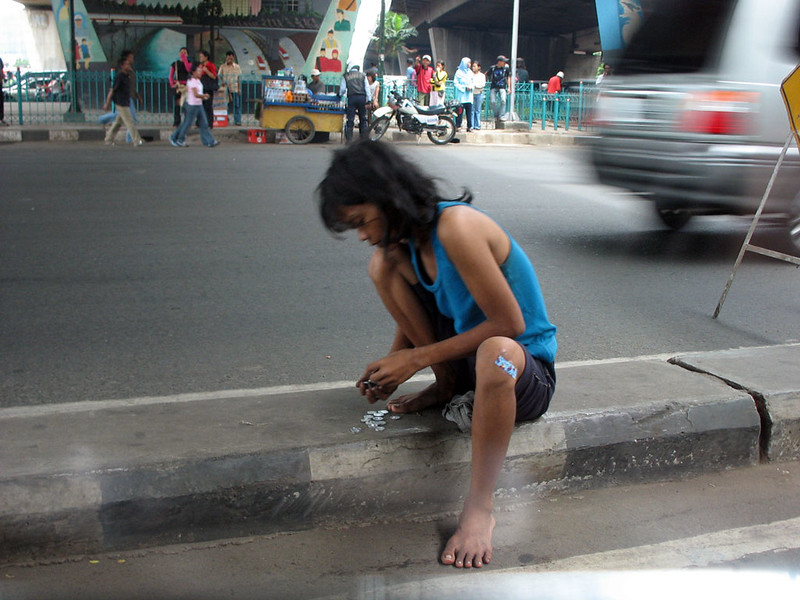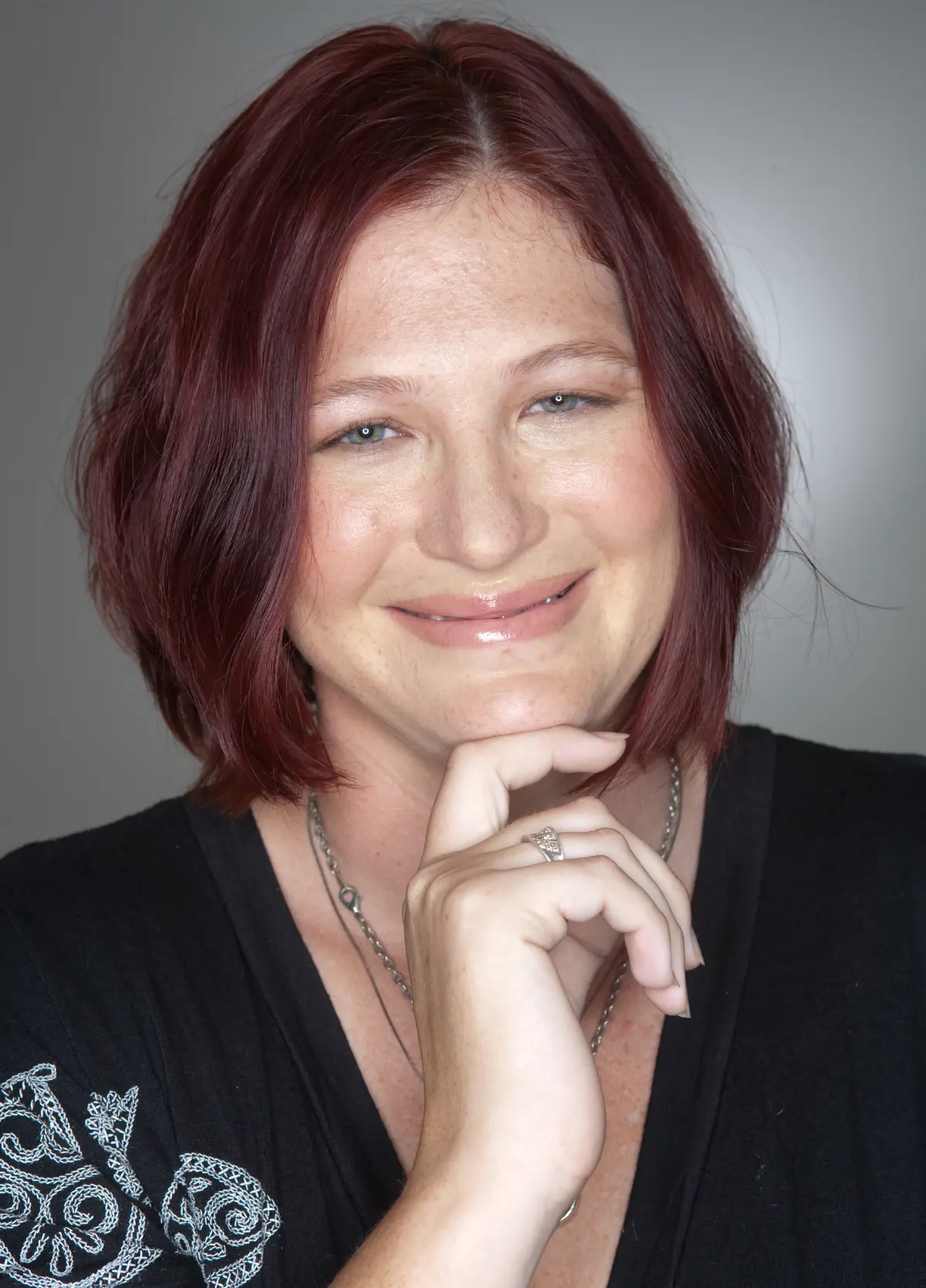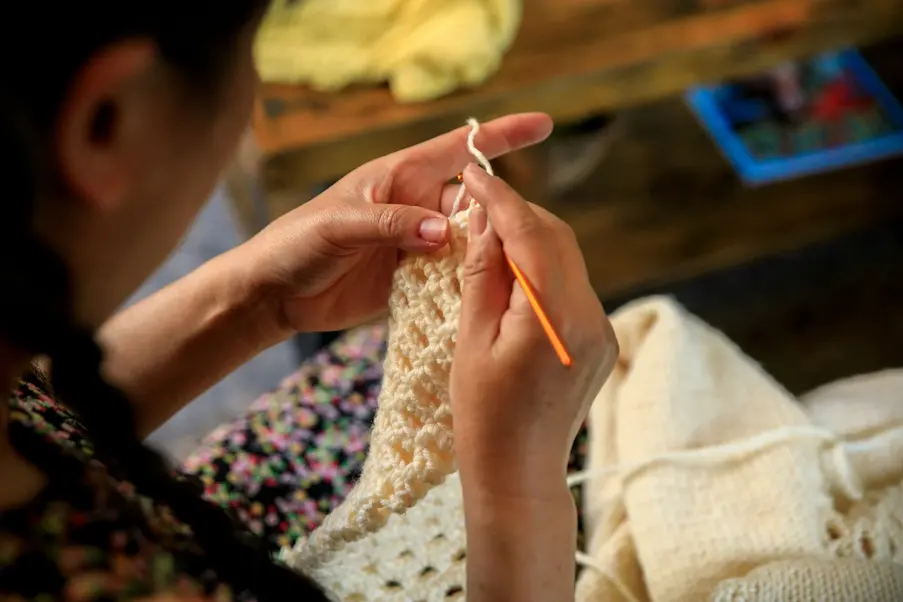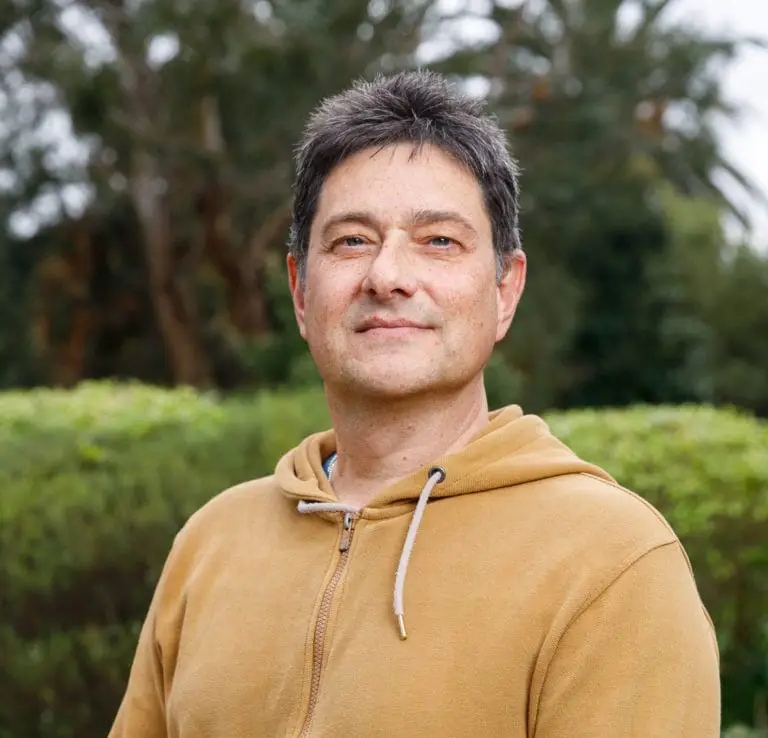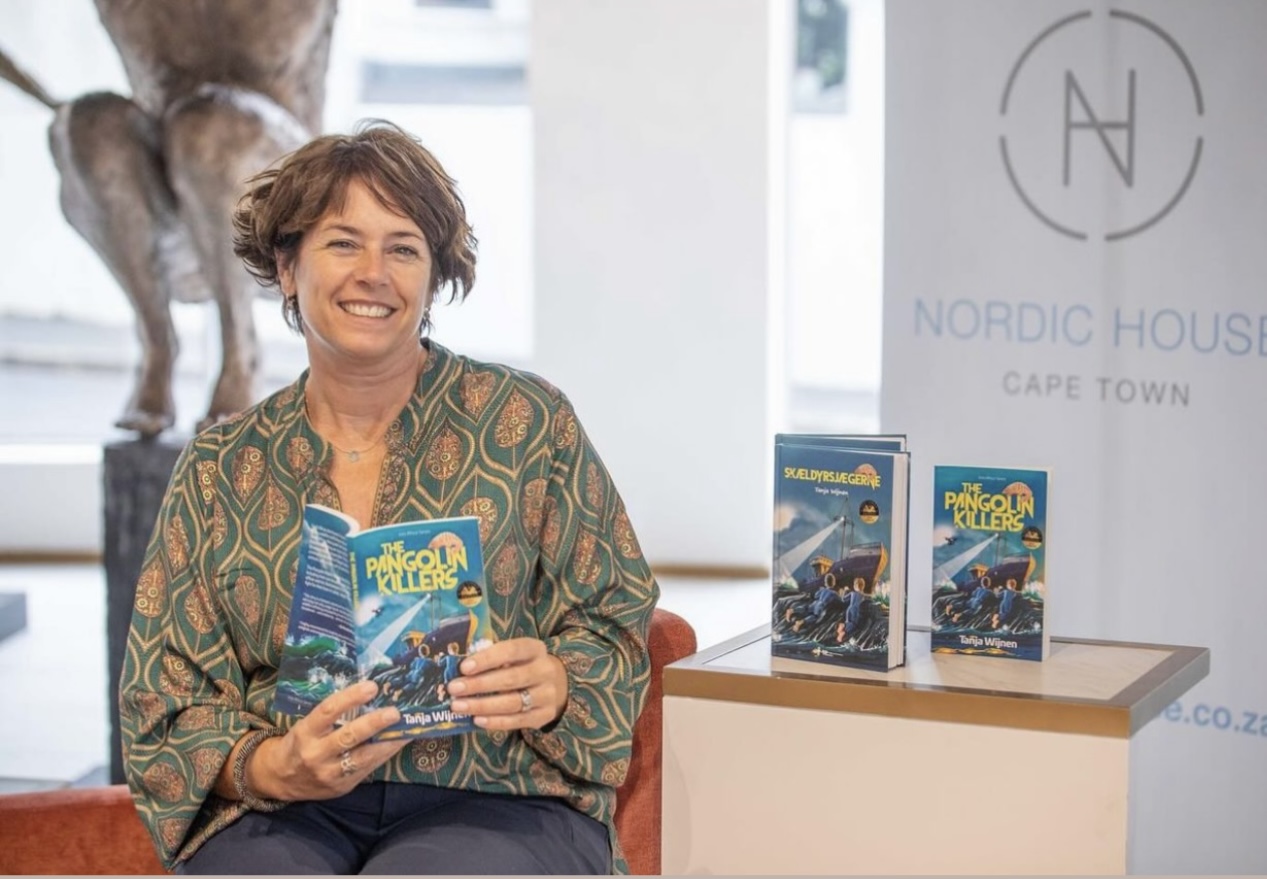Each year we run an internal competition for our creative writing students who want to showcase their writing. This year, we selected Peter Hood’s short story ‘Lunchbox’ for the Writers College Creative Writer of the Year Award. Read his moving story below.
Lunchbox
by Peter Hood
Think I’m a con? That’s okay, but at least I’m honest. Try testing your level of generosity and motive. Are they always transparent? I doubt it. That vagrant you see standing day after day at the same intersection. Does his or her plight hit you in the gut? Do you satisfy your conscience and give something? Sometimes — maybe. But always? Don’t kid yourself. Resentment will have set in long before then.
Hey! I’m not knocking you or them. Those few cents and the occasional note you dole out to the bums. They need it, and besides, someone once said, “Giving is food for the soul.” So I give. I do my part. Sometimes to the church as a tithe, and sometimes I dish it out myself. It’s for that reason I always keep a small stash of coins in the car.
As I offered the burger, I watched an emaciated life form in odd-fitting clothes rise and approach. His movements were languid and lacked the fluidity of a young man. The boy, fashioned by the elements, had an enlarged head and small skeletal hands that oozed odious pus from sores. I remember dropping the burger in shock.
‘What the hell? You sick or something?’
The boy smiled, and for a moment, I was taken aback. I wasn’t sure what I’d expected, but this?
‘I’m Lunchbox.’
‘Lunchbox?’
It was his eyes that bewitched me. They sparkled with innocence and hope.
‘When I’m older, I’m going to be a famous soccer star. Just like Messi.’
I forgot about the girl, and I spent the next hour listening to Lunchbox’s stories. At first, it was to humour him, but that changed. His openness and naivety drew me in. He said he was twelve and had spent all of his life living on the streets.
‘Soccer’s the best. If it’s not raining, me and my buddies buy “slap chips” and bread, and watch a game. There’s a TV in that store’s window,’ he said, pointing. ‘The night guard, Phineas, if he sees us, turns it to the soccer channel. He’s cool. We like him, and he doesn’t chase us away.’
He told other stories. How, on Thursday afternoons, Father Mac, the old priest from the stone church in town, made them hotdogs. And also, if they were lucky, he’d give them clothes. One time he got a t-shirt with Messi’s name and number on it.
‘Weekends are also great,’ he said. ‘Me and the guys stay at the dumpsite and stock up for the week. You’d be surprised at what some people throw away.’
An hour later, we parted ways, and in all the time we’d spent together, he’d never once complained about life or its hardships.
‘You promise to get your hands seen to? Here,’ I said, handing him some notes, ‘there’s enough for medication and a little extra to buy you and your buddies some K.F.C.’
Around two in the morning, I awoke from a nightmare, my body drenched in sweat and perspiration. Hundreds of little Lunchbox frames had been marching through my head, their atrophied bodies kicking a great leather ball. But it was their faces that terrified me the most.
We log through word and deed our anger at the atrocities and perversions of war. But for the horrors that befall the likes of Lunchbox and his friends? What do we do for them — the innocent, the indigent, the vulnerable?
I should do something special for Lunchbox. Get him cleaned up, buy him some new clothes, and take him to a soccer match. But what then? What after? Send him back to the streets? No! Best forget him; focus on the positive things in life.
It’s so easy to justify one’s actions or in my case, inaction. A week later, after seeing a client in town, I thought about Lunchbox. Did he get his hands seen too? With business done, I took a drive and looked for him. Why do this? Is it to appease your conscience, or do you feel guilty for not following through? The answers eluded me, but I still spent the better part of an hour searching. Eventually, I headed back to the office.
The following day was Thursday, and I remembered that Father Mac made them hotdogs. Then the epiphany. Why not take some sweets and clothes? Father Mac could dish them out with the hotdogs. As for Lunchbox, I’d give him something special to remember me by. Maybe a soccer ball. That’s it. That’s what I’d do.
Around eleven the following morning, I went shopping for clothes.
‘Early Christmas?’ asked the cashier. ‘Must be a real large family you have.’
I smiled and even tipped her.
Next was the sports shop where I got not one, but two soccer balls. Then finally, the sweet shop.
‘Mister,’ said the manager, ‘with what you’ve purchased, we’re happy to give you a ten per cent discount.’
‘Thank you; much appreciated,’ I said.
After piling everything into the car boot, I headed into town. The church wasn’t difficult to find; I’d driven past it dozens of times. After parking in a side street close by, I collected my bounty and went off in search of Father Mac.
I saw him coming out of a side entrance near what I assumed was the rectory. Plonking the packets on the ground, I introduced myself and asked about the hotdog lunch and the kids. With a melancholic look, he said the delivery had been cancelled—something about the store owner going bust.
‘And the kids?’ I asked.
‘Oh! They’ll be happy with what you’ve brought; they’ll think it’s Christmas.’
‘But next week?’
‘We’ll worry about next week, next week,’ said Father Mac.
Then he smiled, helped me with what I was carrying, and invited me in.
I’m not sure what I expected. Father Mac’s home was a one-room dwelling attached to the church. No kitchen. No bathroom. He must have read my mind as he pointed to another building a little way away.
‘It has a small kitchenette and bathroom,’ he explained. ‘And it’s clean.’
In Father Mac’s quarters, a large, wrought-iron bed, propped up on bricks, stood in the corner. A couple of faded pillows and an anaemic-looking blanket were its companions.
‘It’s the kids’ idea,’ he said laughingly, pointing to the bricks. ‘Something about if a “Tokoloshe” comes visiting.’
On the floor in the middle of the room, a locked steel toolbox covered with a towel acted as a table, and a single plastic chair stood by its side. Against one of the white-washed walls, as a sentinel watching the despair of life pass by, stood an enormous pine cupboard protecting, I assume, the sum of Father Mac’s worldly possessions.
He sat down on the bed and pointed to the chair, and motioned me to sit. ‘So! What’s with the Father Christmas angle?’ he asked.
I told him how I’d met Lunchbox and about the nightmare. And how I’d wanted to do something the following day but hadn’t. All the while, he said nothing but listened. When I’d finished my story, he stood up.
‘Indifference,’ he said, ‘is difficult to overcome. Give it time. All healing needs time. But come, I want to show you something.’
Then, gently placing his arm on my shoulder, he led me to an inner courtyard garden. I’m not easily surprised, but the wonderland before me made me giddy and filled me with inexplicable euphoria. The scents emanating from this oasis imbued their bouquet into every fibre of my being. For one moment, it felt as if I’d stepped into an angel’s playground.
‘It’s their place,’ he said, ‘their special place. Let me show you.’
We walked through this little Eden toward the wall at its far end. Nailed to it were about sixty small brass plaques engraved with various names and expressions of virtue. I saw Joy, Patience, Peace, and many more.
‘It’s my gift to them,’ he said. ‘It’s their private place of rest.’
Father Mac, realising my confusion, explained. He said that each plaque represented a brief life snuffed out. Some he knew, but most of the kids that passed, he didn’t. When a death occurred, the police would let him know, and the garden was his way of remembering they were special.
I’ve never been one for pledges, but that day I made a few, some to Father Mac and some to myself.
It’s been two months, and yes, I believe I’m changing. A tenderness seems to have replaced my apathy. And on Thursdays… Well, that’s my special day now! I bring hotdogs and whatever else I can scrounge together. Just watching their faces is pure pleasure.
As for Lunchbox, I never saw him again. But I often think of him. His friends tell me he’s a soccer star. I know that’s true because when I dream, I see him playing midfield with the angels.
About the Author, Peter Hood

I left school at fifteen and never thought about writing. Then at sixty, I began reading. The short story genre became my passion. I was introduced to the likes of Gogal, Melville, Jackson, Poe, and so many more wonderful writers. It was their works that inspired me to put pen to paper. That was five years ago. I tried writing thoughts and ideas down but battled with basic language. I also did not know what verbs, prepositions, and nouns were, let alone what adjectives, adverbs, conjunctions, and articles are. All I knew was that I needed to write.
Since then, every day has become a wonderland of excitement and expectation. I’ve written several short stories and completed the November NaNo write, but ninety-nine per cent of what I’ve written, I’ve never shared with anyone. Something, I suppose, to do with the fear of rejection.
Thanks to the Writers College 5-Day Challenge, their prize allowed me to take the next step and do the Literary Short Story Course. This and the encouragement from Andrew Solomon, my tutor for the course, prompted me to submit my short story, ‘Lunchbox’.
Photo Credit: Flickr.com: Huiping Ho

